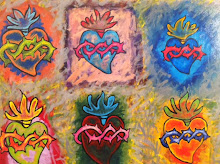+
It is a famous sentence in the bible, famous for its brevity, ”Jesus wept.” Those words actually mean a lot to me....struck with the grief Jesus experienced at Lazarus’ death. How very human!
I’d like you to consider those words. We are faced with the fact that sooner or later every one of us is going to die. Are you (am I) prepared not only for your (my) death, but importantly, are we also prepared for the loss of our loved ones, our best friend, our sister, our brother, our husband, our wife?”

An ancient African saying is “There is no way out of the desert except through it.”
+
No amount of knowledge can prepare us for bereavement. Grief is the most intense and enduring emotion we can experience. No quick fix. No short-cut.
Knowledge of the grief process gives us a very generalized map of the terrain
have to cover. Each of us will take a different route. Each will choose his own landmarks. We will travel at our own unique speed and will navigate using the tools provided by our culture, experience, and faith. In the end, we will be forever changed by our journey…..
Nevertheless, knowledge helps us avoid the major pitfalls of grief. A knowledge of what is known of grief assures us that we have not lost all sense of sanity. When we find ourselves feeling befuddled in a mist shrouded swamp we can say “It’s OK. This too is part of my journey. Others have gone this way before me and I will survive. I am human.”
Experts describe the process of grieving and the emotions of grief in various ways. The most commonly described reactions are:
1. Shock,
2. Denial,
3. Anger,
4. Guilt,
5. Depression,
6. Acceptance
7. Growth.
Some people experience the grieving process in this order. Most often, a person feels several of these emotions at the same time, perhaps in different degrees.
Don't be afraid to talk about death or loss. Children do not benefit from "not thinking about it" or "putting it out of their minds." Share important facts about the event and try to get a sense of what the children think about it and about death in general.
We shouldn’t wait until a death traumatizes a child, but talk openly about the passing on of a loved one.
+
Life as well as death, both are important:
> How do I see faith as lifegiving, for myself and others?
> Jesus shows a lot of emotion in today's Gospel reading: He weeps! He gets perturbed!
>>> How do His feelings affect me?
>>> What does He do with His intense feelings?
>>> What do I usually do with mine?
> Whose death caused me the most sorrow?
>>> What more can I do in my life to honor that person?
+




























No comments:
Post a Comment